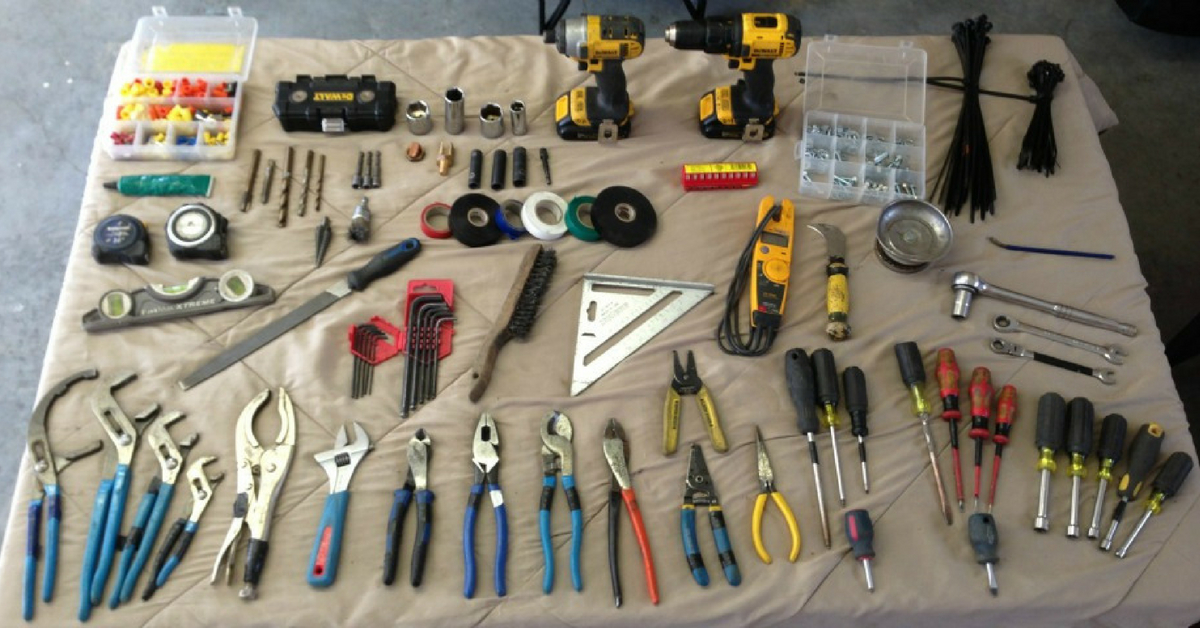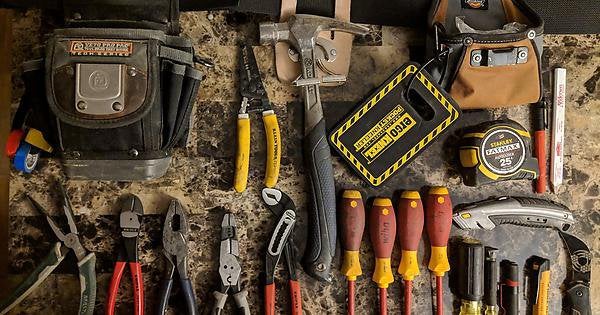The number of electricians in the US is growing, with around 15.2% more people taking on electrical work year on year. With this significant portion of the industry being first-timers, it can be helpful for them to know exactly what they’ll need and the electrical supply store locations ahead of their first time on the job.
Screwdrivers
You’ll rarely encounter an electrical project you don’t need a screwdriver for. At a basic level, you’ll need a comprehensive set to gain access to boxes and circuitry – and if you invest in a shielded set, you can use longer screwdrivers to poke around without fear of receiving a shock.
Wire Strippers
Wire strippers will save you a lot of trouble over time. They are specialised tools, designed to take off the rubber sheathes around most wires and cables. The ratcheting kind can grip a cable, weaken a section of the earthing shield and pull it away, leaving the conductive centre bare for you to work with.
Pliers
Pliers have many different uses depending on the application. You may use them for cutting cables, stripping particularly large or difficult cable snakes, and even twisting cables together. It is worthwhile to invest in a few kinds of pliers for different uses – small needlenose pliers are useful for smaller wire routing, side-cutters can be used for snipping off cable ends and square-nosed steel pliers are great for gripping and holding cable in place.

Crimpers
Crimpers are a vital tool in any electrician’s arsenal; they allow for the safe, swift and efficient splicing and fitting of cables without the need for time-consuming soldering, which could well need to be re-done further down the line. Crimping tools can also be used to provide strain relief to the ends of cables and wires, where they connect to bodies or circuits.
Fish Tape
Fish tape is an invaluable, but easily-forgotten, asset to any electrician’s belt. It allows you to route wiring through walls and up through the house, by lowering or extending the wire through behind the wall, attaching cables at the other end and hoisting them back through.
Multimeter
Multimeters are multi-purpose measurement tools, capable of measuring – among other things – resistance, voltage, current and capacitance. These are extremely useful for identifying continuity in cables, as well as confirming expected values at different points in a circuit.
Voltage Indicator
Not all multimeters are made equal, and many multimeters can become dangerous when used incorrectly, or on particularly high voltages. This is why a Voltage Indicator is crucial for safely testing whether or not mains cables are live. These indicators have a high internal resistance and are fused, preventing fusebox trips and preventing injury to the user in the event of a surge.
Wall Chaser
The only power tool on this list, the wall chaser is a key tool for quickly creating channels in walls. Two or more abrasive discs are used to partially cut into and churn out sections of wall, leaving grooves for you to lay cable in.
Tool Box
It will help you no end to have somewhere to put all your tools – otherwise you’ll be trekking back and forth from your work to your car, or rummaging around in piles of loose tools to find the right screwdriver for the job.
Flashlight
A flashlight is an indispensable tool for any electrical worker – whether you’re working in a cavity and need to see where your cables are going, or you’re working in the dark while you fix a fusebox issue, your flashlight will come in handy on nearly every job.





